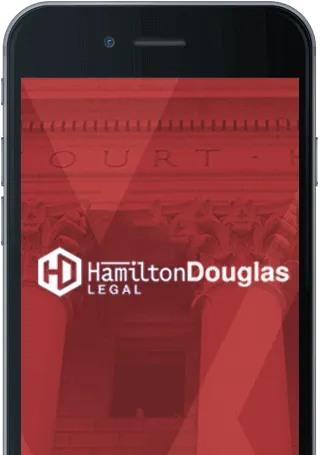
Sarah John's
Legal Writer
When it comes to personal injury claims, most are settled without ever stepping foot in a courtroom. In fact, only a small percentage of claims make it to trial. Between October and December 2023, a total of 402,000 claims were started in the County Court in the UK. Of these, 13,000 were personal injury claims. However, out of all the claims made, only around 3%—or 11,000 cases—actually went to trial. This shows that the vast majority of claims are resolved before reaching a courtroom. Personal injury claim going to court UK is relatively rare, as most are settled before reaching that stage.
Typically, personal injury claims are straightforward. The process is designed to be as efficient as possible, with both sides working toward a settlement. Going to court can be expensive and time-consuming, which is why most cases are settled out of court. However, in some situations, where liability (or who is at fault) is disputed, or there’s a disagreement over the compensation amount, court proceedings might become unavoidable.
If you’re wondering whether your personal injury claim will end up in court, keep reading to understand what happens when it does and why the chances of a trial are relatively low in the first place.
Table of Contents

Get In Touch With Your Local Office:
With local knowledge and a national network of experts, we have the experience you can count on.

How Likely Is It for a Personal Injury Claim to Go to Court?
It’s not very likely for a personal injury claim to go to court. While many claims start the court process, only about 2% to 3% of them actually reach a trial, as most are settled beforehand.
Why Might a Personal Injury Case Go To Court?
Your case might need to be heard in court if it’s complicated or essential. Claims involving fatal accidents, severe workplace injuries or industrial diseases, medical negligence, claims involving children, serious road accident injuries, and back, head, and spinal injury claims are some examples of this type of litigation. A few other reasons may include:
1: Compensation Not Being Agreed Upon Between You And The Other Party (defendant)
If you and the other party involved in a dispute are not able to agree upon terms of compensation, court may be an option. Unfortunately, going to court can be an expensive and drawn-out process.
When considering taking a case to court, it is important for both parties to understand what will happen if an agreement cannot be reached. Judges have the authority to decide how much compensation should be awarded in each case and their decree is legally binding. If the losing party does not comply with the agreed settlement then further legal action can be taken in order to receive payment which can add extra time and cost on top of what has already been spent.
2: The Other Party Is Unresponsive
If the defendant or their insurance company is slow to respond or doesn’t respond at all, your solicitor can ask the court for assistance.
By doing this, the defendant will be legally required to answer correctly and, if they haven’t already, hire a lawyer to represent them.
3: Insurers Responding And Needing The Courts To Intervene
In Scotland, it is not uncommon for insurers to respond to injury claims with a refusal of liability or a low settlement offer. The solicitor may initiate court proceedings if the defendant asserts that they are not responsible. Despite this, negotiations will continue until the day of the trial because, in most cases, all parties involved would still rather avoid going to court.
Why Many Personal Injury Claims Settle Out of Court?
Most personal injury claims Scotland are settled out of court because both parties have a clear understanding of each other’s case early on. By sharing important documents like medical reports, loss of earnings, and vehicle damage estimates, the facts are laid out, making it easier to reach a fair resolution. This early exchange of information helps avoid the time, costs, and stress that come with going to court. Court proceedings can be expensive for everyone involved, so it’s usually in both parties’ best interest to settle the claim amicably before it escalates further.
What to Expect If Your Personal Injury Case Goes to Court?
If your personal injury case goes to court, there are a few key steps you should expect. In Scotland, if the defendant denies responsibility or offers too little compensation, your solicitor will initiate court proceedings. This is done through the Simple Procedure for claims under £5,000 or the Ordinary Cause procedure for claims over £5,000. The court claim form will include important details, such as medical reports and financial losses, to support your case.
Once the claim is served to the defendant, they must respond within a specific period. For Simple Procedure cases, the response time is 14 days, while for Ordinary Cause cases, it’s typically around 21 days. If the defendant doesn’t respond or disputes the claim, the case moves forward.
For smaller claims (under £5,000), the Simple Procedure applies, while larger cases are handled through the Ordinary Cause process. If your claim is complex or involves significant damages, it may be heard in the Sheriff’s Personal Injury Court in Edinburgh, which specialises in these types of cases.
Once all the necessary information is submitted, the court will set a timetable for both sides to take action. Even after the timetable is set, there may still be opportunities to negotiate a settlement. If no agreement is reached, the court will schedule a hearing. During the hearing, the sheriff (judge) will consider all the evidence and make a decision on who is responsible for the injury and how much compensation you should receive.
If you’re unhappy with the decision, you can appeal to the Sheriff Appeal Court. In some cases, you might be able to appeal to the Court of Session, Scotland’s highest civil court.
It’s important to consult with a solicitor who has experience in Scottish personal injury law. They will guide you through the process, protect your rights, and ensure you’re fully prepared for every step.
Understanding Pre-Trial Negotiations in Injury Claims
Even after a court date is set, pre-trial negotiations continue. Most parties, including the court, prefer to avoid a full court hearing. In more complex cases or those with higher value, insurance companies may deny liability, even if it’s clear the defendant will eventually be found responsible. This strategy is often used to see if you are willing to go to court, encouraging settlement before the hearing.
Will I Need to Attend My Personal Injury Court Hearing?
In Scotland, whether you need to attend your personal injury court hearing in person depends on the type and details of your case.
For smaller claims under £5,000, which follow the Simple Procedure, you usually don’t need to attend court in person. Instead, you might be able to submit written evidence or attend the hearing by telephone or video call. However, if the case goes to a hearing, the court may ask for your presence to provide testimony.
For claims over £5,000, handled under the Ordinary Cause procedure, attending court is more likely if your case goes to trial, especially if you need to give evidence. If the case is heard in the Sheriff’s Personal Injury Court in Edinburgh, your attendance is generally required unless there’s a valid reason for remote attendance.
In many cases, your solicitor may represent you, but you may still need to attend if the court requests your personal testimony.
DEDICATED CLAIMS ADVISORS
Our dedicated claims advisors are always available to offer free legal advice.
100% NO WIN NO FEE CLAIMS
All our claims are processed on a No Win No Fee basis; you pay nothing if you lose.

MILLIONS SECURED IN DAMAGES
To date, we have secured millions in damages.
THOUSANDS OF SATISFIED CLIENTS
To date, we have helped thousands of clients recover compensation and continue to do so.
Is a Jury Involved when Personal Injury Claims Go To Court?
No, there is no jury in personal injury cases in Scotland. These cases are heard in a civil courtroom, where a judge makes the final decision. Although court hearings can be stressful, many claimants find that the process is less daunting than expected. In fact, some people feel reassured knowing that their case will be decided by an experienced judge rather than a jury.
How Long Do Court Proceedings for Personal Injury Claims Take?
The time it takes for court proceedings in personal injury claims in Scotland depends on the case’s complexity and the procedure used. For smaller claims under £5,000, the process is usually quicker. After submitting the claim form, the defendant has 14 days to respond, and if it goes to a hearing, the decision can take anywhere from 2 to 6 months, depending on the court’s schedule.
For more complex cases over £5,000, the process can take much longer. These cases might take several months to over a year to resolve, particularly if negotiations fail and the case goes to trial. If the case is heard in court, it could take 6 months to a year or more before a final decision is made.
Overall, the timeline for personal injury claims in Scotland typically ranges from 3 months to over a year, depending on the case.
Steps to Starting a Personal Injury Claim
The first step in starting a personal injury claim is to speak with an experienced lawyer. At HDClaims, we have over 20 years of experience helping those who have been injured or mistreated. We are on your side, and unlike other law firms, we don’t represent employers or insurance companies. Call us today at 0141 2801112 or complete our short inquiry form for a free, no-obligation consultation about your case.

Can’t Work Due To Illness Or Injury?
Use our free online claim check tool and find out in minutes if you have a claim.
What You Should Do If Your Injury Claim Goes to Court?
If your injury claim goes to court, the first thing you need to do is sign the court papers. This is called a Statement of Truth, where you confirm that everything you’ve said in your claim is honest and accurate. It’s very important because if you knowingly provide false information, you could face serious consequences, including charges for contempt of court.
Once the court proceedings begin, the court will set a timetable for all the steps in the process. This includes exchanging documents and evidence, even if they were already shared before the court proceedings started. Both sides will need to disclose their evidence so that everything is clear and fair.
Eventually, the court will schedule a final hearing where a judge will review the evidence and make a decision about your claim. During this hearing, both sides will have a chance to present their case. It’s essential to follow the court’s timeline and attend any hearings as required, as your case will be decided based on the information provided during the proceedings. Throughout this process, it’s a good idea to work closely with your solicitor, who will help you understand your responsibilities and prepare all the necessary paperwork.
Types Of Personal Injury Cases That May End Up In Court Include:
If a settlement cannot be reached during negotiations, or if the defendant fails to respond to the claim, a personal injury claim will end up in court. However, it is uncommon for a personal injury claim to go to court, as the vast majority of cases are settled through negotiation.
Personal injury claims are only likely in extremely rare instances. Among the reasons why your case may go to court are:
1: Serious Work Injuries
Serious injuries can have a serious and lasting impact on the lives of those involved. In Scotland, legal claims for compensation are often pursued in court when a person has suffered a serious injury caused by another person or organisation.
2: Medical Negligence
Medical negligence claims in Scotland can lead to a legal battle if the resolution cannot be agreed upon outside of court. When a person has suffered a serious injury, illness or death as a result of inadequate medical care, they may have grounds to make a medical negligence claim in court.
3: Injuries To The Head, Back, And Spine
Head, back, and spinal injuries can have a huge impact on people’s lives, both physically and emotionally. In Scotland, people who experience these types of injuries may take legal action to receive compensation. Injury claims are handled by the court system in Scotland due to the potential severity of the injury. The court will evaluate each claim on its individual merits before ruling whether or not an injured person has a legal right to compensation. Generally speaking, the claimant must demonstrate that someone else was either wholly or partially responsible for their injury in order to be eligible for damages. This means that negligence must be established before any award is granted. For example, if an accident occurred as a result of medical malpractice, then this would form part of the basis for such a claim. Additionally, cases involving defective products or workplace accidents can also lead to an injury claim being pursued in court.
4: Injuries Of Children
When children suffer from personal injuries, the process of seeking justice can be daunting. Litigation involving minors can be complex and lengthy but necessary for ensuring appropriate compensation for the injured party. Our panel of no win no fee solicitors are experienced in handling court cases relating to children’s injuries and helping them receive fair compensation.
Easy Ways To Get In Touch
We are here to help. Give us a call, request a call back or use our free claim check tool to get in touch with our friendly legal team. With local knowledge and a national network of experts, we have the experience you can count on.






